DRONECODE FOUNDATION
2023 Annual Report
Year In Review
In 2024, the Dronecode Foundation will celebrate its 10th year of nurturing and directing the open standards and software that supports the open-source drone community. The last year has set the stage for much to celebrate with landmarks that speak to the growing maturity of the ecosystem and fulfill the grand mission set almost a decade ago.
The foundation welcomed six new members in 2023, including those who built their businesses from scratch on top of the PX4 open standards and others who see a valuable investment in the stability and growth of the community.
Through the tireless work of hundreds of contributing developers, the PX4 ecosystem continues to provide the critical infrastructure that ensures secure, safe, and efficient UAS operations globally. Organizations ranging from startups to large enterprises can all leverage hundreds of thousands of human work hours invested to date to grow their businesses on top of proven technologies
2023 saw the release of PX4 V1.14.0 and MAVSDK 2.0, marking important milestones in those projects’ development. The year also brought increased integration with the ROS ecosystem, opening up new opportunities for collaboration efforts with the greater field of general robotics. This was fully on display in October where the PX4 Developers Summit and ROSCon held co-located events, joining the communities in-person for the first time ever.
Our annual report includes details about all of these achievements and more! If you want to show your support for open source or want to know more about the Dronecode Foundation’s work, please read on for more information, stats, quotes from our community members, and more.

$1B Project Value
Combined project value

5 Projects
PX4, Pixhawk, MAVLink, MAVSDK, QGC

19 Members
Driving Worldwide Innovation

1,000+ Contributors
Growing Community of Contributors
Executive Summary by

Mike Pehel
Marketing Lead @Dronecode
A Brief History
A DECADE IN OPEN SOURCE
- 2009, Birth of the Pixhawk project
- 2011, Birth of PX4 Autopilot
- 2014, Formation of Dronecode Project, Inc. by founding members
- 2016, Birth of MAVSDK
- 2019, First PX4 Developer Summit in Switzerland
- 2021, Birth of Pixhawk Open Standards
- 2023, A total of 11,352 unique contributors across projects
- 2024, Celebrating our first decade together
Testimonials From Our Community
ARK Electronics
ARK Electronics is a USA-based company that develops professional, cutting-edge technology with products ranging from autopilots and GPS systems to optical flow sensors and other advanced sensors. It proudly supports open standards and contributes back to the community to ensure the interoperability of its products across varied platforms.

“ARK Electronics officially joined Dronecode in 2023 after many years of working with the community. Participating in open standards committees and PX4 firmware development has enabled us to grow and support drone manufacturers in the USA and around the world. We look forward to continued collaboration and seeing where open source can take the drone industry.”
Holybro
Holybro manufactures a vast array of hardware built on top of the PX4 open standards including the popular Pixhawk 6X and 6C flight controllers, the PX4 Drone Development Kit, and other components.

“The Pixhawk Hardware Standards enable an ecosystem of trusted hardware and interoperability. It standardizes the flight controller connectors and ports, and this has allowed our customers to mix and match products from different manufacturers into their systems.
Before these standards, our customers would have trouble using our drone peripherals with other manufacturers’ flight controllers and vice versa. We believe that it has helped the community and industry grow.”
Project Accomplishment
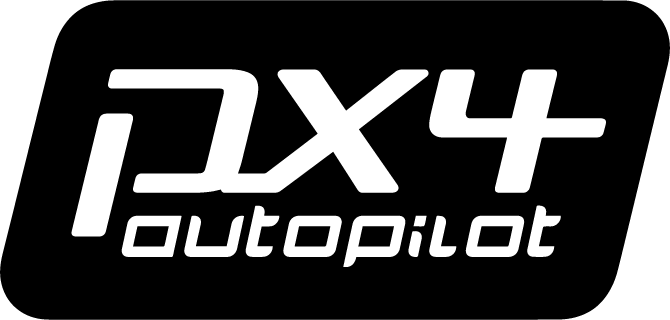
PX4 Autopilot
This year, the PX4 project ran more than a hundred community meetings, marking 2023 as one of the most active in the project’s history. March saw the minor release of “PX4 v1.13.3“, bringing new hardware support and essential fixes for hardware.
The project also had a major stable release, “PX4 V1.14.0“, bringing a plethora of enhancements and fixes, such as enabling the new Dynamic Control Allocation by default for everyone, a much improved preflight failure check reporting, and simplification of the failsafe architecture, including failsafe simulation. V1.14 also introduced the New Gazebo as the default simulation target, and the upgraded ROS 2 bridge, thanks to the uXRCE-DDS bridge, brought the PX4 and ROS communities closer.

Pixhawk
The Pixhawk project officially published the DS-012 Open Standard with the Pixhawk FMUv6X pinout, defining the architecture for the 6th family of hardware. The Pixhawk Autopilot Bus (DS-010) is already helping form an ecosystem of Carrier Boards supporting FMUv6X and FMUv5X, with multiple vendors offering alternatives for drone developers and system integrators. You can find the latest copy of the Open Standards on GitHub.
Dronecode is starting to offer Standard Validation services for those manufacturers interested in being part of the Pixhawk Ecosystem. Additionally, the Pixhawk SIG is currently accepting members; interested organizations should contact Dronecode.
QGroundControl
Two stable releases during 2023, v4.2.9 and v4.3.0, brought many bug fixes and improvements ranging from UX and UI to adding new hardware support. Both releases have several feature additions from the MAVLink standards and their autopilot stack implementations in PX4 and Ardupilot. Lastly, the project is porting to Qt6 with more performance improvements and an updated toolchain. You can follow the development on the master branch of the project.
The project seeks volunteer developers to help sustain its development and maintenance. Interested developers must reach out to the maintainers.
MAVSDK
The MAVSDK project celebrated the release of v2.0, thanks to contributions from 29 contributors from across the globe. The release introduced top-level API changes and improvements, such as support for multiple callback subscriptions, streamlined autopilot discovery, better support for server components (camera, companion/onboard computer side), and tons of new plugins and functionality out of the box. Read more on the MAVSDK v2.0 release on GitHub.
MAVLink
MAVLink continues standardization efforts with approximately 75 merged PRs in both the mavlink/mavlink and Pymavlink (tools) repositories. A few significant highlights include:
- NEW BATTERY services proposed in RFC19 in 2022 are now aligned with DroneCan and are now being implemented in at least one flight stack.
- Missions now support reliable notification of changes and reliable updates only when needed. Implemented in PX4 and PR for ArduPilot
- Remote ID APIs are now being implemented.
- Implementations now exist in PX4 for component metadata, events, and standard flight mode APIs. PRs exist for ArduPilot.
- Wireshark fixes for long term bugs now in place.
- rust-mavlink generator now part of MAVlink organization – contributed by BlueROV
- Python 2 support dropped in the toolchain.
Development Hardware
PX4 AUTONOMY DEVELOPMENT KIT
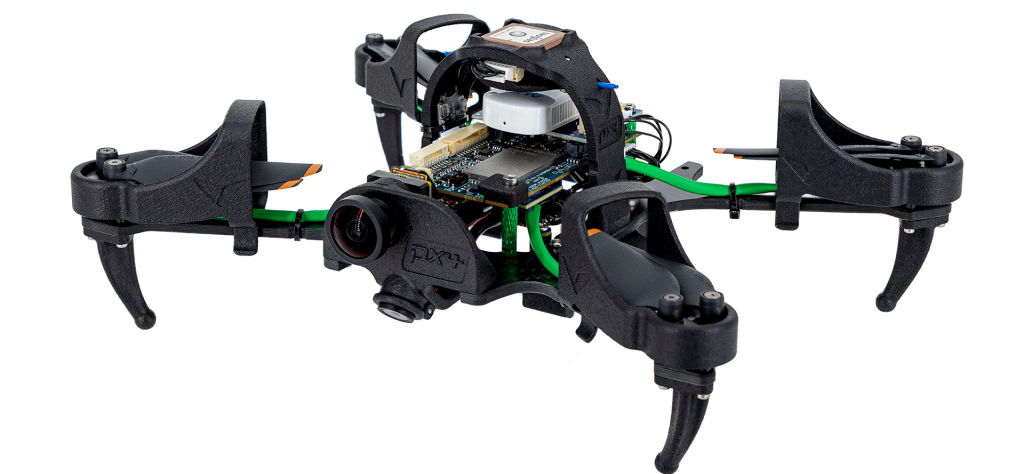
It was introduced during the PX4 Developer Summit 2023 in New Orleans. The Kit was designed for PX4 developers pursuing development efforts under GPS-constrained environments, offering a unique combination of computing power and sensors capable of capturing the environment.
- Powered by Qualcomm RB5165: 8 cores up to 3.091GHz, 8GB LPDDR5
- 4K hi-res and CV tracking image sensor onboard
- Supports: PX4, OpenCV, ROS 2, Docker, VOXL SDK
ModalAI plans to offer the Development Kit through 2025 and will continue supporting PX4 stable releases, starting with “PX4 v1.14,” which brings ROS 2 Foxy support to the platform. We believe this Kit is excellent for:
- Navigate in GPS-denied environments with VIO (Visual Inertial Odometry)
- Navigate safely in tight spaces with Visual Obstacle Avoidance
- Adapting to dynamic environments thanks to 3D Mapping and advanced Path Planning capabilities
New Pixhawk Hardware
AUTERION SKYNODE-X
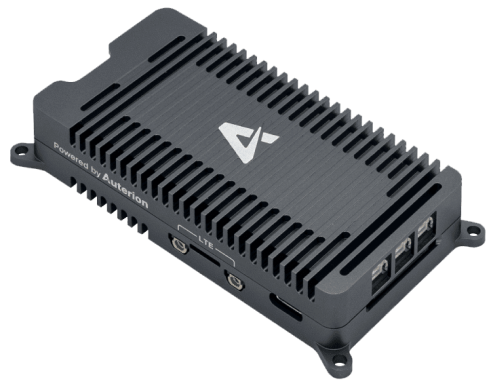
Now 30% thinner and 15% lighter with upgraded performance, it’s much more than just an autopilot and capable of the most demanding applications. Skynode-X comes bundled with the Auterion Suite and is powered by the Pixhawk FMUv6X Open Standard.
CUAV PIXHAWK V6X
The first official Pixhawk by CUAV, fully compliant with FMUv6X (DS-012) and PAB (DS-010) validated by Dronecode, brings double precision with triple redundant IMUs with built-in shock absorption.
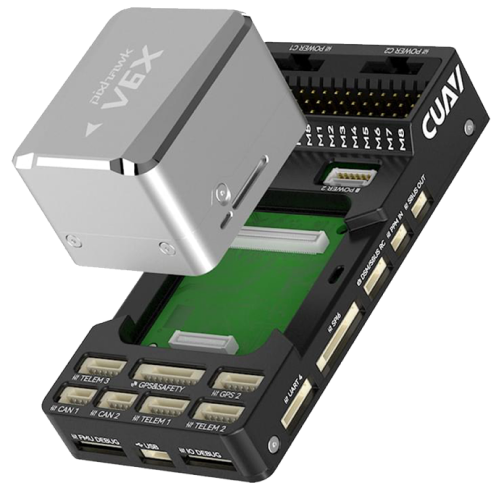
Contribution Metrics
MEASURING IMPACT
Total Unique Contributors
The vibrancy of an open-source project lies squarely in the hands of its contributors. Even though maturity may be the theme of 2023, new talent continues to enter into the PX4 ecosystem. Now in its ninth year, the project sees an average of over 1,000 new, contributors annually. Our top individual contributors represent a mix of newcomers and veterans, all lending their part to foster the stability and resilience of open drone technologies.
Note: Definitions of Contribution and Contributors can be found on the F.A.Q. at the end of the report.
Top Contributors
PX4 Autopilot
MAVLink
- Hamish Willee 26.3%
- Patrick Pereira 17.3%
- João Cardoso 9.7%
- Vladimir Ermakov 5.0%
- Julian Oes 4.2%
MAVSDK
- Julian Oes 39.2%
- Jonas Vautherin 21.3%
- @tbago 1.6%
- Alessandro Simovic 1.2%
- Arpit Parashar 1.2%
QGroundControl
- Don Gagne 21.6%
- David Sastresas 8.4%
- Philipp Borgers 8.1%
- Patrick Pereira 4.9%
- Hamish Willee 3.2%
Top Contributing Organization
51%
OF TOTAL CONTRIBUTIONS
At the forefront of open-source innovation, Auterion champions the adoption of autonomous systems across the globe. Since its founding, Auterion has maintained the title of the largest contributor of code to the PX4 ecosystem and played a significant role in driving the advancement of the Pixhawk open hardware standards.
Events
PX4 Developer Summit 2023 @ New Orleans
The PX4 Developer Summit stands as the premier conference for the drone development community. Held in New Orleans in 2023, the event gathered top maintainers, developers, hardware engineers, academics, and professionals for two days of delving into the newest advancements within the PX4 Ecosystem and sharing good vibes in the Big Easy.
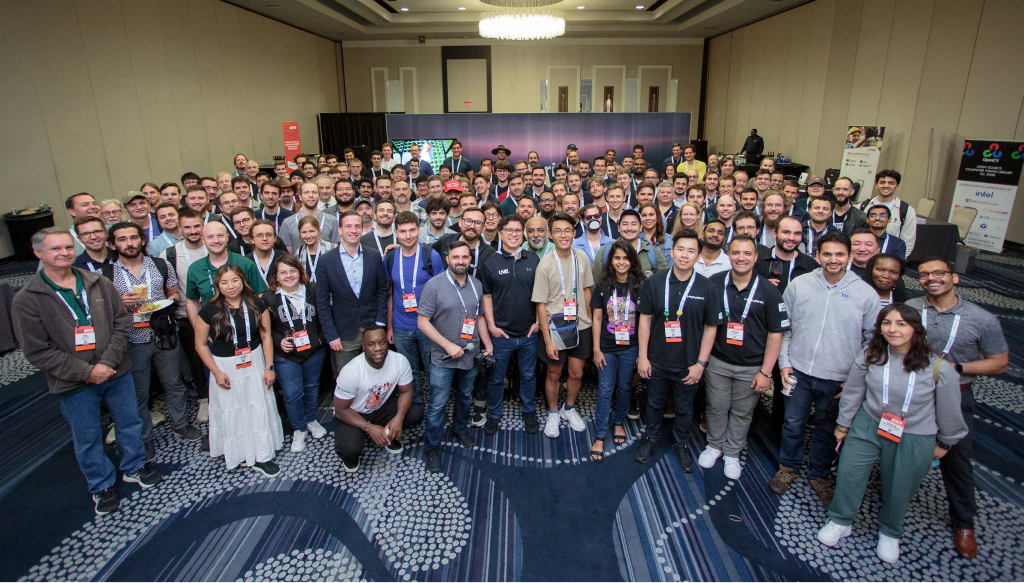
ROSCon 2023 @ New Orleans
The Robot Operating System (ROS) community and the PX4 community share a love of robotics development, and this year, ROSCon was co-located with the PX4 Developer Summit in New Orleans. The ROSCon conference brings together researchers, developers, and enthusiasts from various backgrounds to share knowledge, recent advancements, and experiences in using ROS for robotics projects.
AUVSI Xponential 2023 @ Denver
As one of the largest and longest-running events globally for automated systems technology, AUVSI’s Xponential increasingly hosts organizations building their technology on top of the PX4 ecosystem. Xponential offers a great opportunity to read the current state of industry trends and see how stakeholders, from component makers and OEMs up to manufacturers of small-UAS and AAMs all contribute to the constantly evolving field of aerial robotics.
Commercial UAV Expo @ Las Vegas
There are few places where you can connect with as many commercial end users of drone technology as possible at the Commercial UAV Expo. Drone operators from sectors like surveying and mapping, public safety, construction, and energy gather together under one roof to share ideas and strategies for deploying drones to revolutionize their businesses. Held once a year in Las Vegas, it’s worth the trip to see how open drone technologies are reshaping industries.
Scholarships
SUPPORTING THE COMMUNITY
The Dronecode Foundation prioritizes investing in the future talent that will shape the open source aerial robotics community. This year, the foundation spent $20,000 on our Diversity and Needs-Based scholarships to help bring bright and up and coming individuals from across the globe to the 2023 PX4 Developer Summit in New Orleans. By providing financial assistance for travel, accommodation, and conference fees, the Dronecode Foundation ensured that financial barriers did not prevent the most promising minds from participating in the summit.
This initiative not only enriched the event with a wide range of perspectives but also empowered recipients by giving them access to networking opportunities, workshops, and keynotes that are crucial for their professional growth and contribution to the open source community.
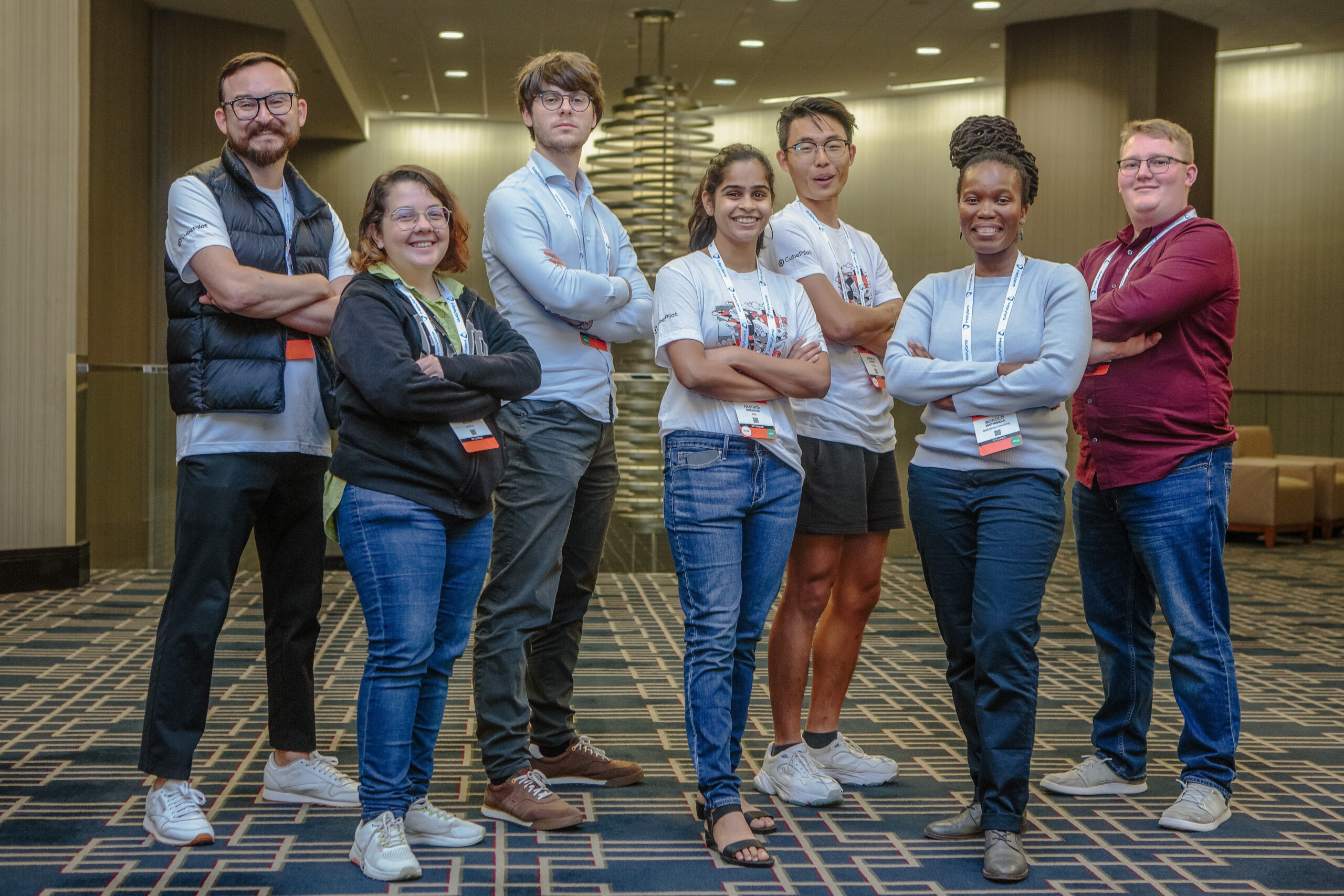
Funding
REVENUE SOURCES
Revenue from the Dronecode Foundation emanates from our primary fundraising sources, including membership, event sponsorship, event registration, the recently included Pixhxawk validation services, and minor contributions from our YouTube channel.
61.2%
MEMBERSHIP REVENUE
6.2%
EVENTS REGISTRATION
0.1%
YOUTUBE
30.3%
EVENTS SPONSORSHIP
2%
PIXHAWK SERVICES
EXPENDITURES
The Dronecode Foundation advocates the positive-sum approach, emphasizing community and growth. Investment in Marketing & Business Development (57.1%), including the PX4 Developer Summit and new member outreach, underscores its commitment to expanding community strength. Further allocations to Leadership & Coordination (23.9%), along with other operational and collaborative efforts, are essential for maintaining the ecosystem’s vitality. These strategic expenditures ensure a nurturing environment for projects, fostering the diversity and expansion crucial for a successful open-source initiative.
40.6%
EVENTS
16.5%
MARKETING
6.7%
OPERATIONS
1.4%
LEGAL
23.9%
LEADERSHIP & COORDINATION
7.3%
G&A
3.3%
DEVELOPER COLLABORATION
Help Us Continue Growing
BECOME A MEMBER
Become Dronecode’s latest member or learn other ways you can show the open source community your support by connecting with us today!
For any specific inquiries, please get in touch with the Dronecode Foundation at info@dronecode.org.
Book 1:1 Time with Dronecode
THANK YOU
“Open source thrives through our global developer community’s collective efforts. Your contributions, big or small, to the PX4 ecosystem. Whether by spreading the word, committing code, or allocating resources, you help pave the way for future drone developers to build great projects on an increasingly strong foundation. Thank you again!”

Ramón Roche
General Manager @Dronecode
F.A.Q.
How are metrics calculated?
Metrics are calculated by LFX Insights, a tool by the Linux Foundation that gives you complete visibility into project performance and ecosystem trends and allows you to understand the contributor communities and make informed decisions thanks to analytics and reporting tools.
How is the project value calculated?
We are using the COCOMO (Constructive Cost Model) to help estimate the effort, time and cost associated with the development of the projects taking into account project size, complexity, team experience and development environment.
What is the definition of a Contributor?
A contributor is defined as someone who makes a contribution. A contributor is either an unclaimed identity or a set of claimed identities (under a single user).
What’s defined as a Contribution?
Contribution is a kind of activity depending on the data source type. We only consider activities on repositories that are not disabled and have insights enabled. Currently, the contribution is defined as any of the following:
- Authoring, Co-Authoring, or committing a git commit.
- Creating/Closing/Editing a Github issue.
- GitHub assignment.
- Creating/Closing/Merging/Editing a GitHub pull request.
- GitHub pull request assignment.
- Commenting on a GitHub pull request.
- Editing/Deleting a GitHub comment.
- Reviewing/Approving/Rejecting/Requesting changes on a GitHub pull request.
- Being requested a GitHub pull request reviewer.
- Pusher
- Watcher
Note: Various reaction types are not counted as contributions, such as GitHub reaction to comment/issue/PR
How is company affiliation determined?
Company affiliations are determined by the individual users, if you haven’t already done so we recommend you complete your LFX profile. Users can have multiple company affiliation. Each affiliation has:
- Date range affiliation starts on a given date and ends on a given date. Both the start and end dates can be unlimited.
- Project affiliations are specific to a project, so users can have different company affiliates for different projects.
- Organization.
User affiliations are defined at the user level, so they apply to all claimed identities of users.






